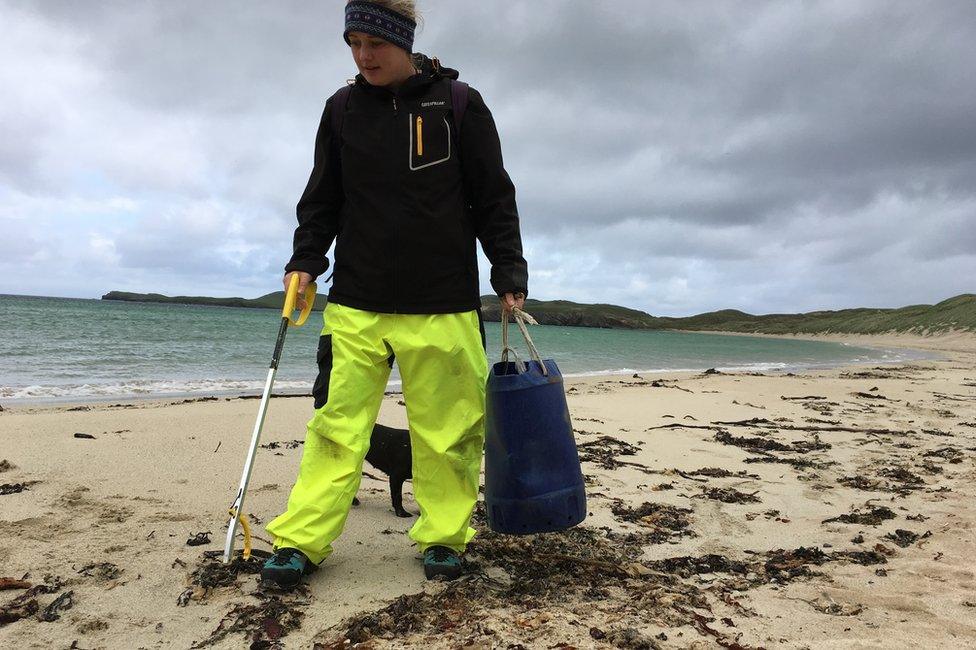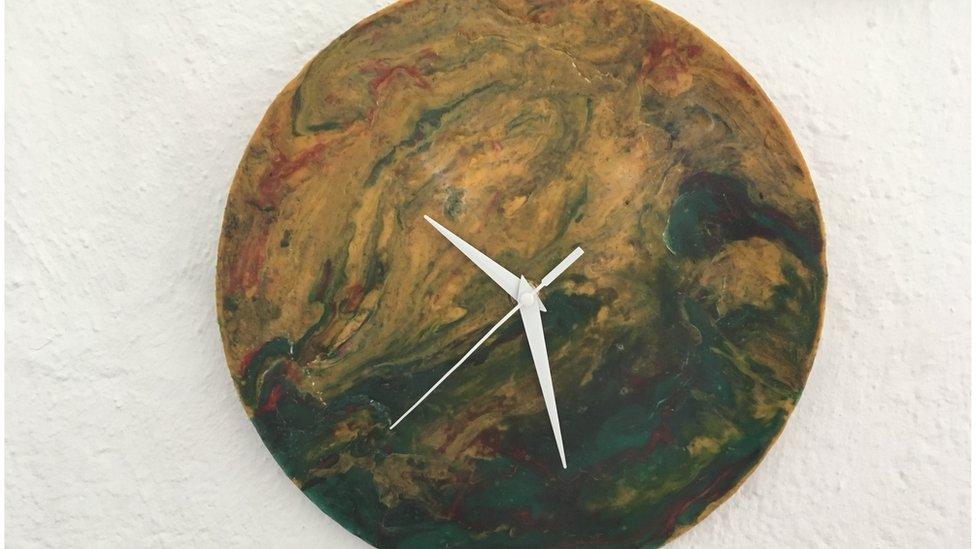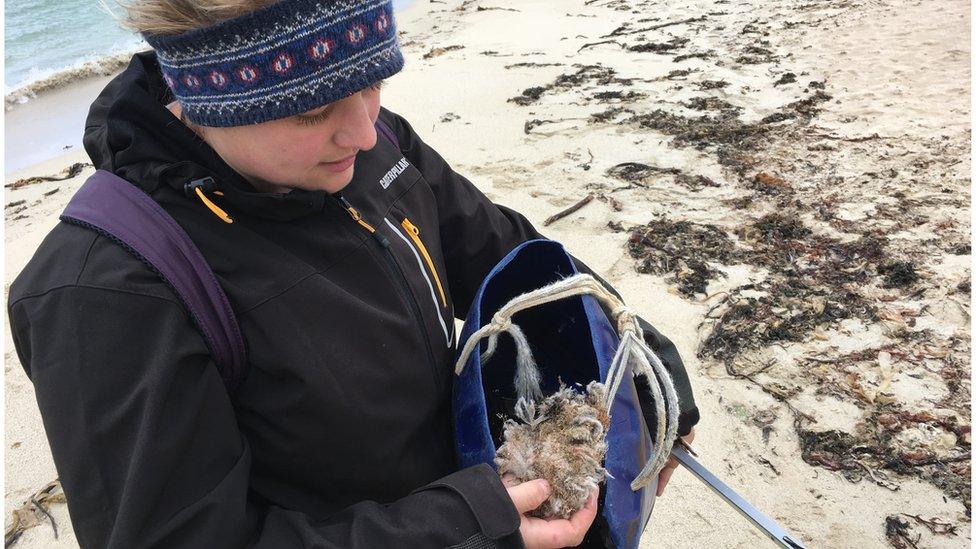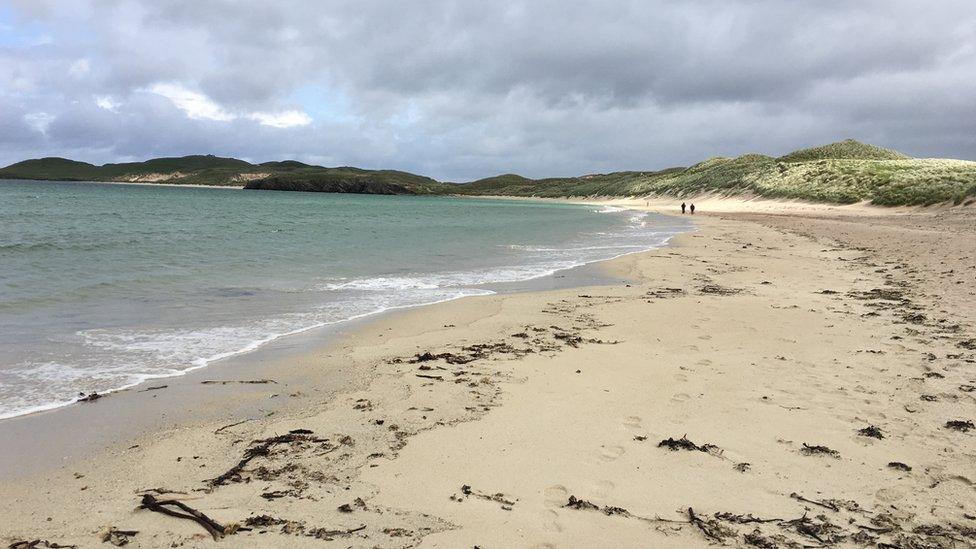The plastic ranger tackling the rising tide of waste
- Published

Hannah Smith collects plastics from the beach at Balnakeil
On Balnakeil beach on the north west coast of Sutherland, Hannah Smith is hard at work collecting plastic waste which has been washed up with the high tide.
Some is household waste but most of it comes from shipping and fishing boats.
Hannah works for Plastic@Bay, a community interest company tackling marine plastic pollution in the far north west of Scotland.
She says the majority of the plastic pollution, such as bits of nylon ropes and fishing nets, gets caught up in the seaweed on the tideline - and every big tide brings more pollution.
Hannah says: "We clean Balnakeil every week. You think you've done a good big stretch and the next week you come down and it's just the same again.
"It does get demoralising but you have just got to think you are doing something positive."
In a further attempt to do something positive, as well as highlighting the amount of waste they are dealing with, the people here in Durness are doing something unusual.
Plastic which can be recycled is cleaned by being left out in the wind and rain and then heated in an oven and moulded into products such as tiles and even clocks.

The plastic is remoulded into items such as clocks
Joan D'Arcy of Plastic@Bay says it is a simple process.
"We just take the fishing ropes and nets, put them into the oven, melt them down, put them under pressure and mould them into objects," she says.
The fishing ropes are usually made of nylon.
"They are actually really cool because they come in many colours and they mix together in a mottled design that looks very attractive," Ms D'Arcy says.

Fishing ropes and nets are often made of nylon
Items include earrings made from melted and pressed fishing ropes as well as vases and garden decorations.
But the story does not end there.
The material collected is weighed and the data gathered is starting to build up a useful picture of the scale and impact of marine pollution.
Plastic@Bay's Julien Moreau says they have already learned a lot since the project started two years ago.
"The first thing I learned is you can't just clean every three months," he says.
"You have to go every week, several times a week or it goes back into the sea. The number of articles which are in the sea is just mind-blowing."

The beach at Balnakeil is cleaned every week
As well as some local sponsorship, the clean-up project received a £65,000 one-off grant from the energy company SSE, using a fund designed to compensate communities for the impact of wind farms.
You may think the clean-up of beaches like Balnakeil, even with the recycling and data gathering here in Durness, is literally a drop in the ocean in terms of the vast scale of the marine plastic problem.
But with all problems you have to start somewhere and, by acting local but thinking global, they say it is also a chance to influence the wider process of working to prevent plastic getting into the sea in the first place.